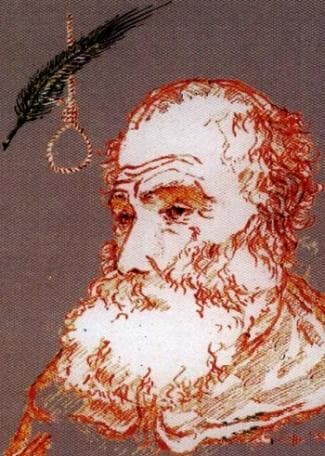
Blessed Robert Nutter
Blessed
Feast Day: July 26
Death: July 1, 26
Biography
Blessed Edward Thwing, also known as Edward Thwenge, was born in Heworth, England, the second son of Thomas and Jane Thwing. He received his education at the English College in Rheims, France, where he studied under the Jesuits at Pont-Ö-Mousson, France, and later in Rome, Italy.
After completing his studies, Edward returned to Rheims and taught rhetoric and logic at the college. In December 1588, he was ordained a priest in Laon, France. Filled with a deep commitment to his faith, he returned to England in 1597 during a period of intense persecution against Catholics.
In England, Edward dedicated himself to serving the covert Catholic community. Recognizing the danger he faced, he bravely ministered to those in need, providing spiritual guidance, administering the sacraments, and offering support to those who risked their lives for their Catholic faith.
However, Edward's mission was not without its risks. In 1600, he was arrested for the crime of being a priest and imprisoned alongside Blessed Robert Nutter. Despite their imprisonment, the two managed to escape briefly, but were captured once again in May of the same year. Subsequently, they were both executed together a few weeks later, having chosen to give their lives rather than renounce their faith.
Edward Thwing's martyrdom exemplified his unwavering commitment to his Catholic beliefs and his willingness to sacrifice his own life for the sake of the faith. His courageous actions and steadfast devotion made him a symbol of resistance against religious persecution.
Blessed Edward Thwing's feast days are celebrated on 26 July and 22 November, honoring him as one of the Martyrs of England, Scotland, and Wales. He is also honored on 29 October as one of the Martyrs of Douai. Pope John Paul II recognized his martyrdom and declared him venerable on 10 November 1986. Additionally, on 22 November 1987, Pope John Paul II beatified Edward Thwing, affirming his sanctity and declaring him blessed.